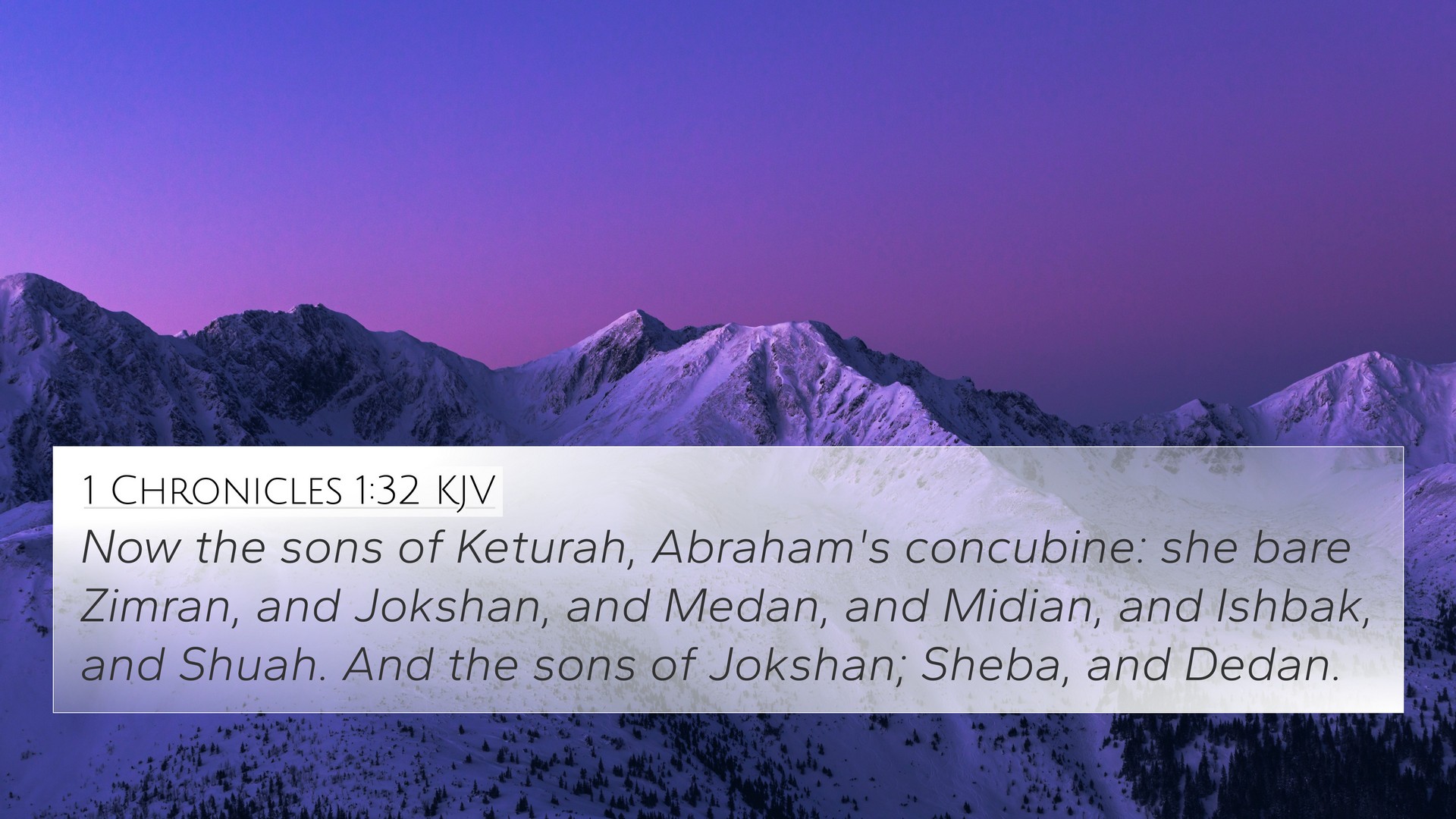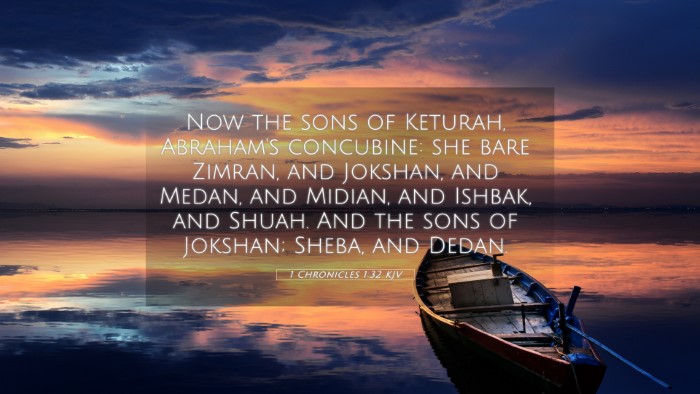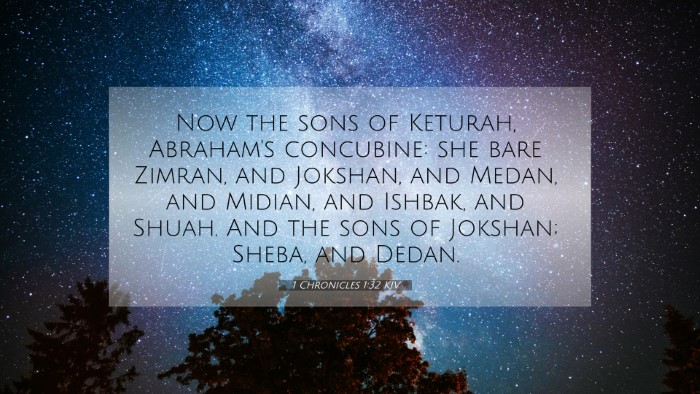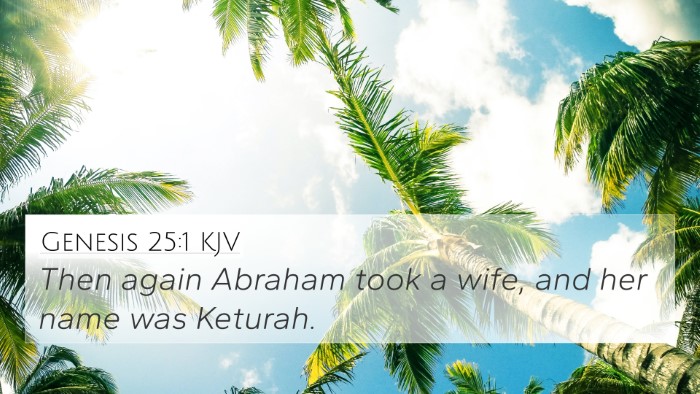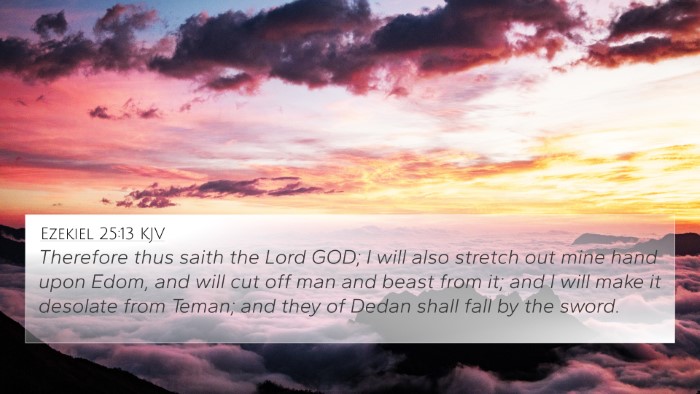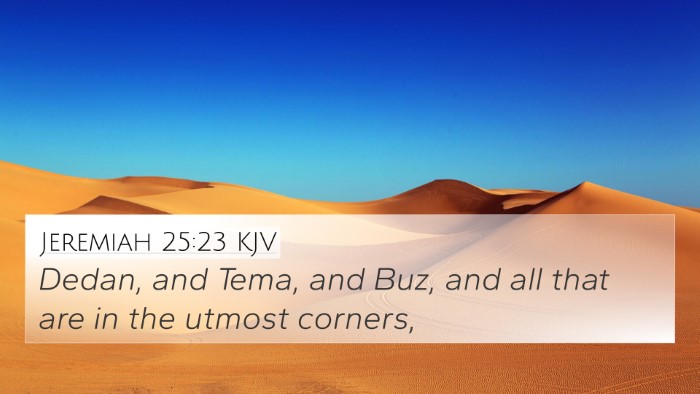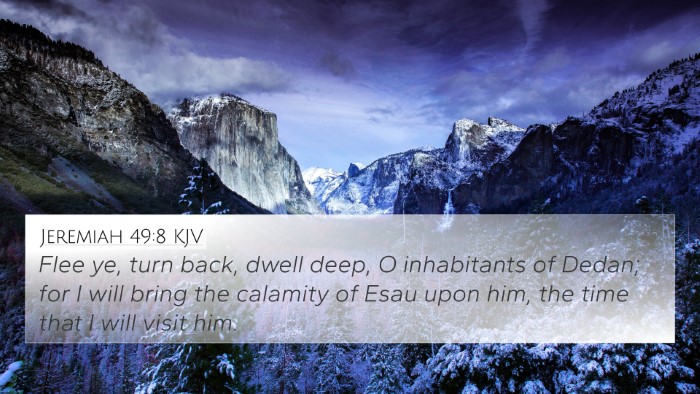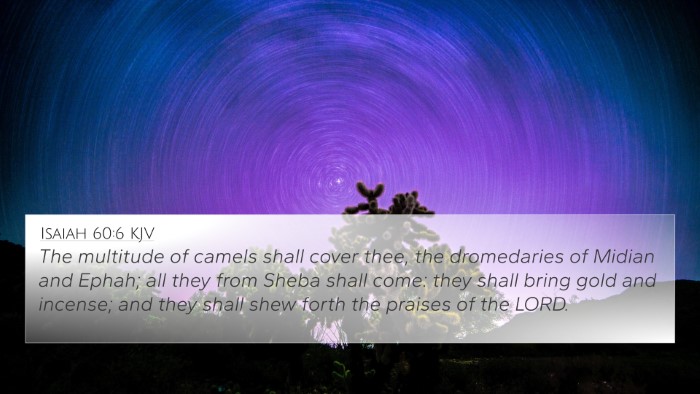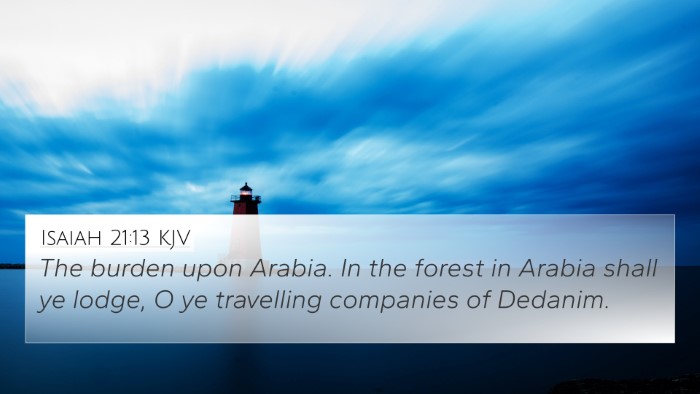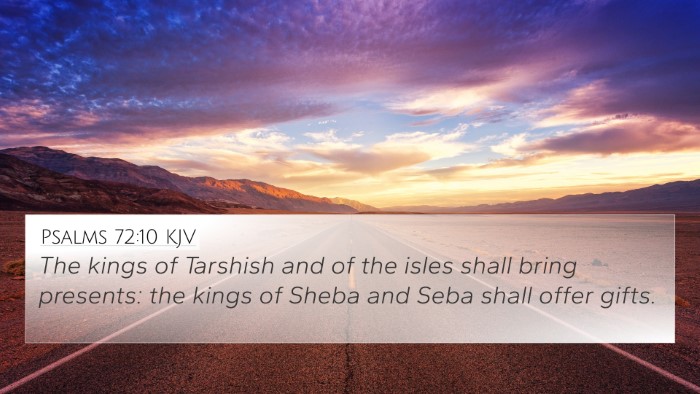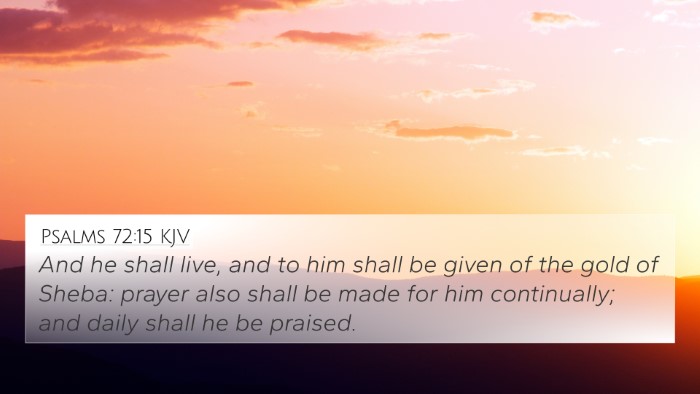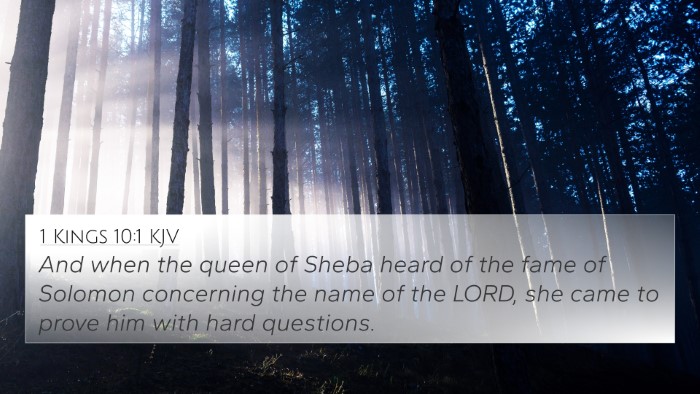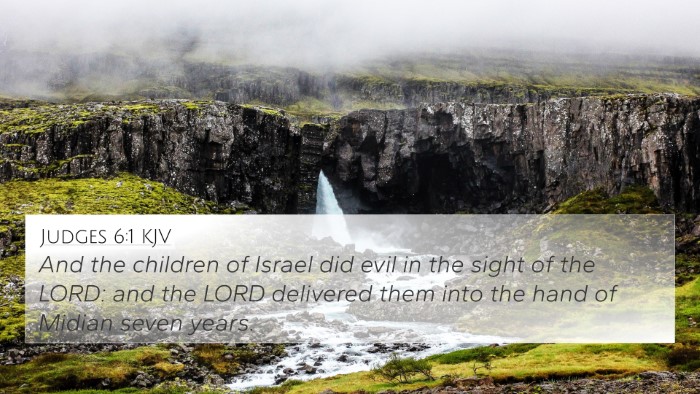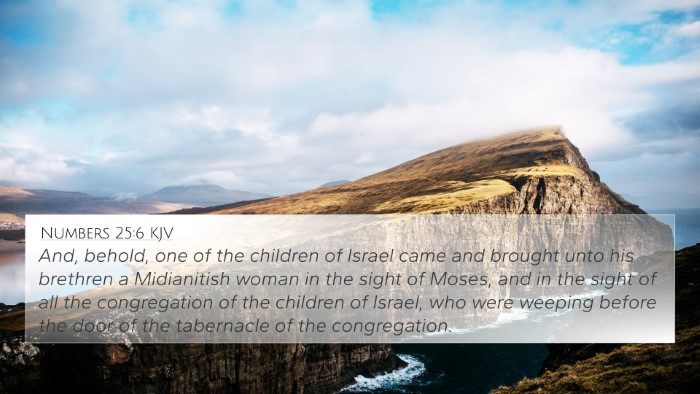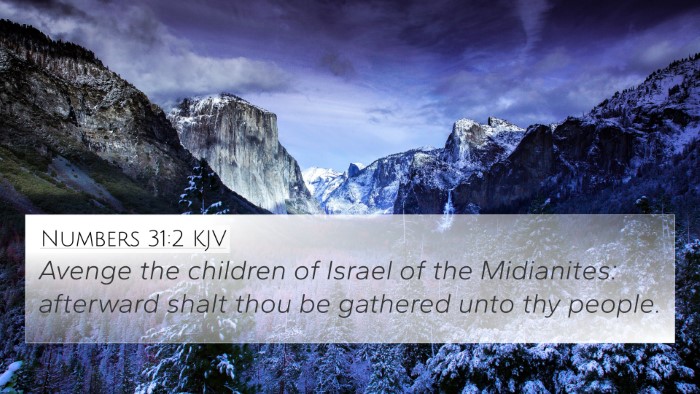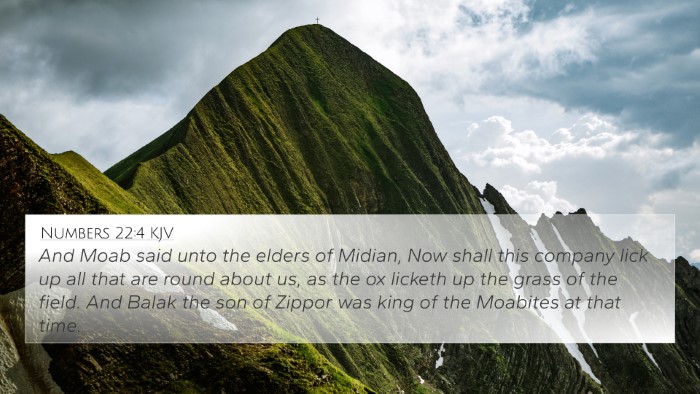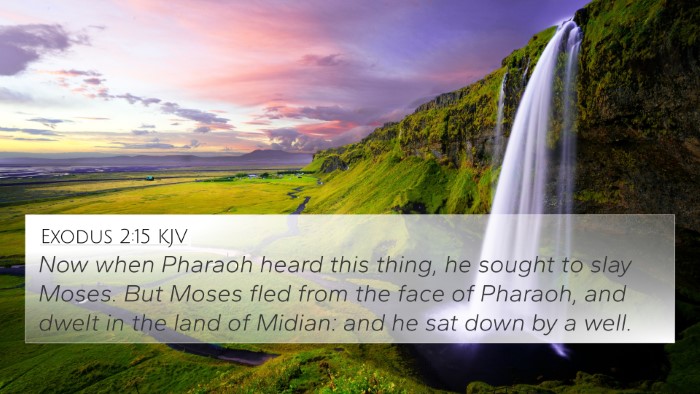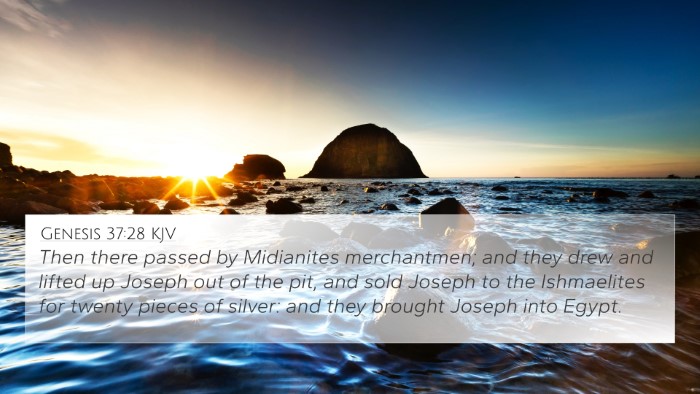Understanding 1 Chronicles 1:32
Verse: "The sons of Keturah, Abraham's concubine: she bore him Zimran, Jokshan, Medan, Midian, Ishbak, and Shuah. The sons of Jokshan: Sheba and Dedan."
Overview
This verse lists the descendants of Keturah, who was Abraham's concubine after the death of Sarah. The lineage described in this passage shows the expansion of Abraham's family beyond Isaac, the child of promise. This opening into the genealogical book emphasizes the role of Keturah and her children in the greater narrative of biblical history.
Commentary Insights
The insights gathered from various public domain commentaries provide a deeper understanding of the text:
-
Matthew Henry:
Henry highlights the significance of Keturah's children, stating that while they were not the children of promise (unlike Isaac), they nonetheless played an important role in the history of the Israelites. He notes that this portion of scripture affirms God's promise to Abraham that he would be the father of many nations.
-
Albert Barnes:
Barnes elaborates on the names mentioned, suggesting that they represent various tribes and nations that arose from Keturah’s offspring. Each name corresponds to distinct regions and peoples. Thus, this verse underscores the fulfillment of God's covenant with Abraham, which involved not only Israel but also various other nations.
-
Adam Clarke:
Clarke provides a detailed examination of the names, offering historical and geographical insights. He suggests that the descendants of Keturah, while often overlooked, significantly contributed to the ethnic diversity in the region and emphasizes the inclusiveness of Abraham’s legacy.
Bible Verse Cross-References
To further understand 1 Chronicles 1:32, it is valuable to look at verses that relate to this passage. Cross-referencing biblical texts enhances comprehension and reveals thematic connections:
- Genesis 25:1-4: This passage recounts Keturah being married to Abraham and details her sons, providing additional context about their lineage.
- Galatians 4:22-23: Paul contrasts Isaac, the son of promise, with Ishmael, drawing on Abraham’s story to illustrate the difference between the heirs of promise and those born of the flesh.
- Exodus 3:6: God speaks to Moses, identifying Himself as the God of Abraham, Isaac, and Jacob, reinforcing the significance of Abraham’s legacy through his line.
- Hebrews 7:14: This verse highlights that Jesus descended from Judah, connecting to the broader lineage stemming from Abraham.
- 1 Timothy 1:4: This verse addresses myths and endless genealogies, touching on the importance of lineage in understanding biblical contexts.
- Genesis 17:4-5: God’s covenant with Abraham is affirmed here, establishing him as the father of many nations, linking themes of family and promise.
- Job 1:1: Job, a man from the land of Uz, is traditionally linked to the descendants of Keturah, exemplifying the spread of Abraham's family across various cultures.
- Isaiah 60:6: This passage mentions the flocks of Kedar, descendants of Abraham through Keturah, highlighting their significance in prophetic literature.
- Romans 9:7: Paul discusses lineage and the children of Abraham, emphasizing the distinction between natural descendants and those of the promise.
- Numbers 24:24: This verse speaks of ships coming from the coast of Kittim, which is linked to Javan, a descendant of Keturah, showing the influence and reach of Abraham's progeny.
Thematic Connections
The verse is significant in understanding the broader thematic elements of:
- Family Lineage: The importance of genealogy in biblical narratives.
- Divine Promise: The contrast between the children of promise and others.
- Inclusivity of God's Blessings: Acknowledgment of various descendants and nations springing from Abraham.
- Historical Influence: The impact of Keturah’s descendants in the ancient world.
Conclusion
1 Chronicles 1:32 invites readers to explore the genealogical roots of the biblical narrative through Keturah's offspring, showcasing how God's promises extend beyond the line of Isaac. By employing tools for Bible cross-referencing, such as a Bible concordance or cross-reference guide, one can delve deeper into the connections and implications found within this verse and others like it.
